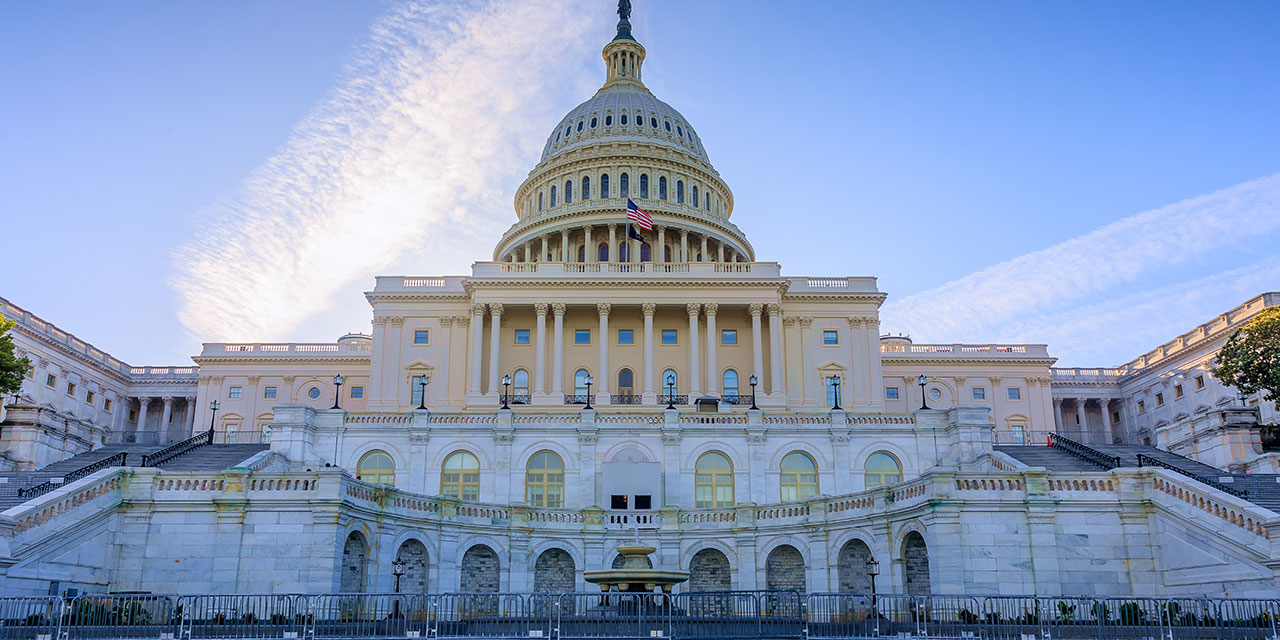
In our polarized politics, a 99–1 Senate vote is a very odd duck. Odder still is the fact that this particular vote—on artificial intelligence regulation, a topic of immense strategic importance—somehow brought together the progressives and the MAGA Right, Midwesterners, Southerners, and coastal elites, all voting as (almost) one.
That 99–1 vote, part of last week’s “vote-a-rama” to pass the One Big Beautiful Bill Act, was to exclude from the final bill a provision for a ten-year federal preemption of state laws regulating AI. The sole holdout—Republican Senator Thom Tillis of North Carolina—announced contemporaneously that he would not seek reelection before ultimately voting against the budget reconciliation bill in its entirety.
Finally, a reason to check your email.
Sign up for our free newsletter today.
The early inclusion of the preemption provision was both surprising and reassuring. State legislatures, most notably California’s, have begun to regulate AI with a heavy hand. If this continues, it could lead to the creation of a nationwide patchwork of rules that will constrain leading model developers, harm open-source projects that lack the funds to follow the plethora of new regulations, and reduce America’s global competitiveness, most notably with China.
California was saved from its unmitigated disaster of a bill thanks only to a last-minute veto by Governor Gavin Newsom. Federal legislators took note of this near-miss and started working to constrain state-level regulations.
The federal effort to preempt state and local AI regulation paralleled similar legislative efforts during the development of the World Wide Web and e-commerce in the 1990s. As local regulations and ambiguous court decisions began to pile up and threaten the dot-com boom, Congress passed the Telecommunications Act of 1996, which enshrined a clear set of rules for the Internet that remain in force today. It might be hard to believe—given progressives’ efforts to thwart capitalism and growth today—but that bill passed the Senate by a vote of 91–5 and the House by a vote of 414–16.
For artificial intelligence, federal preemption wasn’t meant to stop all AI regulation—it was about preventing any one state from causing catastrophic damage (intended or unintended) to one of America’s most important emerging strategic industries.
Though the AI federal preemption measure received broad-based support early on and was included in the must-pass reconciliation bill, it ultimately failed in this extraordinarily lopsided 99–1 vote, even after proposals were circulated to weaken it by shortening it from ten to five years.
How did we get from massive, bipartisan majorities supporting pro-competition, pro-technology measures like the Telecommunications Act of 1996 to an all-but-unanimous vote in favor of ceding AI regulation to the whim of 50 state legislatures and countless municipalities?
The answer is popular backlash. Pew polled Americans back in April on their views about artificial intelligence. The results are among the most striking I have ever seen. There is an extraordinary gap in outlook between the experts building AI and the public as a whole.
Per Pew, only 17 percent of Americans believe that AI will have any positive impacts. A majority said that they are more concerned than excited about its prospects. Less than a quarter believe AI will benefit them at work. AI experts, on the other hand, are wildly more optimistic across all measures.
Latent in all of these statistics is fear—an emotion that resonates with politicians in particular. They know that it’s a powerful motivator for getting out the vote, and that it shifts minds far faster than rational debate. Moreover, the Internet and social media networks allow for the rapid dissemination of doom-and-gloom predictions (read my podcast interview with Jonathan Haidt for more on this).
It’s incredible to consider that OpenAI’s ChatGPT launched just a few years ago, expanded to hundreds of millions of users faster than any other new technology in history, and then, within a matter of months, came to be reviled by so many of its users. Of course, based on leaked revenue numbers, many of those revilers haven’t stopped using AI. Quite the opposite, in fact. People seem more willing than ever to pay loads of cash to have access to the most cutting-edge models.
Why so much usage, and yet so much hatred? I’ll dub the problem FOC UP, or Fear Of Change Under Pressure.
I understand the fears of artists and creatives who see people using AI to illustrate and animate new works in a fraction of the time and at much less expense. I understand the frustration of doctors who now have to contend with patients forearmed with diagnoses spit out by large language models. I understand the software engineers who don’t want to edit code sludge, and the frustration of consumers who hate talking with AI bots on the telephone. I particularly understand the morose depression of teachers and professors who now receive AI-written student assignments that make a mockery of education.
None of these professions are going to disappear, however. There are going to be artists, doctors, software engineers, service workers and teachers, just as there always have been. To be sure, the jobs are going to change, perhaps radically. But that’s happened many times across history—from the printing press to electricity to the computer and the digital economy.
Productivity increases often require major structural shifts among individuals and societies. Change is hard, and change under pressure and at great speed is even harder. It’s far easier, of course, to lobby political leaders to stop all change. That’s what’s happening in places like Washington State, where Democratic legislators have proposed giving public-sector unions an effective veto over any automation of their work.
What scares me about the current backlash isn’t its illogical nature, but rather its vituperative tone. There’s a venom to this backlash that even social media and crypto didn’t experience at their highpoints. I have read about the Luddite movement and its fight against the power loom, and I thought I understood the economic logic of workers looking to fight their displacement by automation. I now realize that it was just profoundly irrational.
For our legislators, the goal shouldn’t be to piece together a patchwork quilt of conflicting regulations. It should be to embrace the future without reservation; to help millions of people retrain through new programs that connect them with AI-native jobs; to rebuild sclerotic institutions, including those that somehow still haven’t gone digital; to offer a consistent message of pragmatism and hope for the future. Productivity gains can redound to everyone’s benefit.
The Internet faced plenty of criticism in its early days, but it created trillions of dollars in value and now stands at the center of America’s global dynamism. That’s what foresight and bipartisan support brought to the United States. The legislators of the 1990s took up the torch and used it to light the way. If this generation of legislators instead uses that torch to set fire to the future, we will come to regret it.
Photo: David Shvartsman / Moment via Getty Images
Source link

















